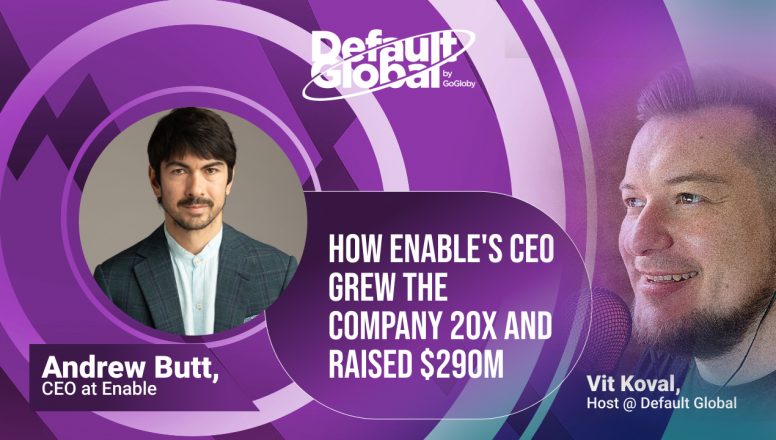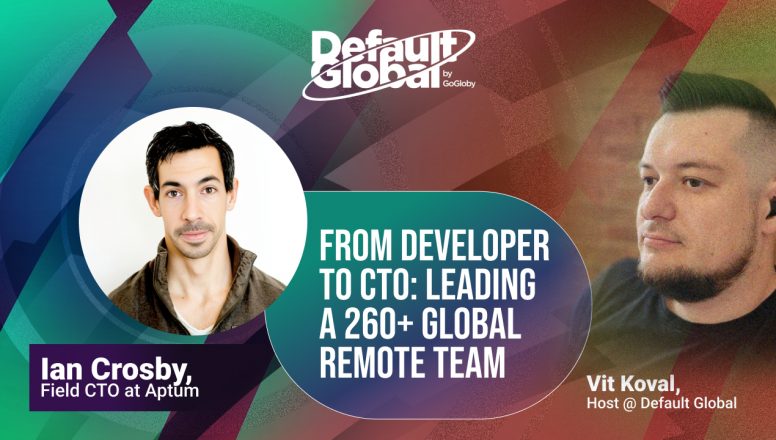Meet Godspower Eseurhobo, Program Tech Product Manager at CLEAR Global:
Godspower is a renowned remote work expert and influencer, recognized as one of the top 50 individuals in the field. His passion for remote work extends beyond the recent surge due to COVID-19, as he has embraced it as a way of life for many years. With a background in product solutions for tech teams spanning five continents, Godspower has extensive experience in the remote work landscape. Hailing from Nigeria, he combines his expertise in building products with a deep desire to help people lead, work, and succeed from anywhere in the world. Godspower finds fulfillment in empowering individuals to discover remote work possibilities, achieve work-life balance, and unlock their full career potential.
Listen Up: Godspower Eseurhobo, Program Tech Product Manager at CLEAR Global — Full Podcast Episode on Spotify
Watch Now: Building Africa’s Largest Remote Ecosystem with Godspower Eseurhobo
Quick Read: Godspower Eseurhobo, Interview Highlights
How can AI and language technology overcome communication obstacles among remote teams in different time zones and countries?
Godspower emphasized that AI would not replace people but rather increase productivity. One exciting application is leveraging machine translation to provide instant translations for customer service interactions. This allows support teams to cater to customers’ preferred languages without losing meaning in translation. The advancements in AI, particularly in machine translation, promise to enhance productivity among global teams.
“The AI would actually give you a direct translation without losing things in translation.”
While text-based communication can benefit from AI, what solutions exist for real-time video communication and team building?
Recognizing the importance of face-to-face interactions for team building, Godspower highlighted the potential of automatic speech recognition (ASR) technology. ASR enables speech-to-speech translation, although its current focus is on text-based communication. Godspower acknowledged the need for future advancements in AI to facilitate real-time translations during video conferences. While such solutions are yet to be fully realized, ASR demonstrates progress in bridging the gap between languages in different contexts.
Can you provide more details about AfriSplash and why companies should tap into Africa’s tech talent?
AfriSplash, led by Godspower, acts as a community and technology platform connecting investors and companies with tech talent in Africa. Godspower highlighted the potential within the African talent ecosystem, emphasizing the emerging and untapped workforce. The platform aims to empower talented individuals in Africa, showcasing that they can succeed from anywhere. By creating a community of mission-driven founders and top talents, AfriSplash facilitates the development of impactful solutions on a global scale. The platform also serves as a gateway to Africa’s remote workforce, connecting it with other parts of the world.
What are common pitfalls companies face when expanding into the African market from a talent perspective?
From a talent perspective, Godspower highlighted the importance of challenging unconscious biases and dispelling misconceptions about the African talent pool. Technology advancements have bridged infrastructure gaps, enabling talented individuals to excel in their roles. The hiring process should prioritize skills and attitude, as numerous skilled talents in Africa are willing to contribute and drive company growth. Companies should take the opportunity to explore the African market without relying on outdated perceptions and embrace the potential of the rapidly evolving African technology landscape.
What motivated you to start this initiative, and what impact have you seen on Africa’s creative talents and their opportunities to work with global companies?
Godspower embarked on his mission to build Africa’s largest remote ecosystem based on personal experiences and a desire to empower the region’s workforce. By working remotely himself, he recognized the potential to showcase his product skills and engage in global conversations about distributed teams. However, he also observed that remote work was perceived as a mirage within Africa, lacking opportunities for individuals to thrive anywhere they desired. This led him to establish after AfriSplash, an initiative aimed at empowering Africa’s workforce, fostering innovation, and addressing the systemic marginalization of underserved communities.
“I decided to start after AfriSplash to empower the entire ecosystem. We have had so many other communities come out of the innovation we started with as a community. Now we have several remote work communities and platforms dedicated specifically to Africans, including those who are underserved or marginalized.”
Considering the time zone differences, are most companies hiring talent from Africa primarily from Europe or the United States?
While companies from Europe and the United States are major players in hiring African talent, Godspower emphasized the importance of promoting African companies to embrace remote work as well. He acknowledged the significant time zone differences between Africa and these regions and addressed the strategies employed to bridge this gap.
“Those two [Europe and the United States] are the major ones. We also promote African talents going remote as well. African companies, I mean.”
How do you deal with time zone differences when managing a distributed team? Do you have any special strategies or technologies in place?
Godspower highlighted the significance of adapting processes when building a distributed team. He emphasized the need to adopt asynchronous communication and documentation practices to maximize productivity and collaboration across different time zones. By embracing asynchronous work, teams can leverage overlapping time zones to achieve more while providing flexibility to team members. Tools like Notion and SharePoint facilitate effective collaboration through documentation, ensuring a shared understanding of discussions and decisions. Additionally, the use of video recording platforms like Loom enables efficient communication without the need for time-consuming scheduling conflicts.
“So one of the first things around that is going async. That’s a strategy around collaboration. And so it means, for instance, in-person communication does not always have to be instant. When it’s convenient for you, you choose your own hours, and you deliver.”
What three key recommendations would you provide to companies new to global hiring and considering expanding to Africa?
When considering global hiring and expanding into Africa, Godspower shared three essential recommendations. First and foremost, he stressed the importance of building a foundation for a remote team by prioritizing inclusivity. By creating an environment where diversity is embraced and inclusion is championed, companies can unlock the full potential of a diverse workforce. Secondly, he emphasized that diversity and inclusion should be top-down initiatives, with commitment and buy-in from senior leadership throughout the organization. Lastly, Godspower highlighted the significance of understanding the local terrain and complying with regional laws and regulations to ensure seamless and compliant global hiring practices within the diverse African landscape.
“Build the foundation for having a remote team. Think about inclusivity as well. Diversity is not something that should be left to a department. It has to be top-down. And the final one is basically looking at the local terrain.”






